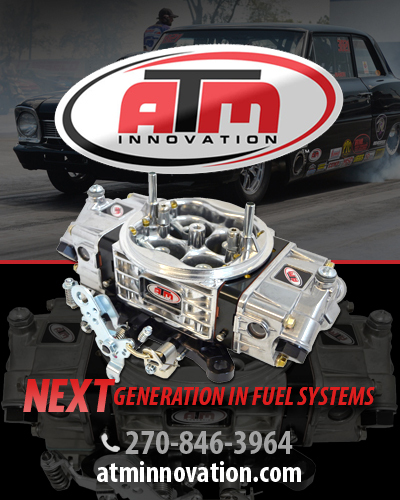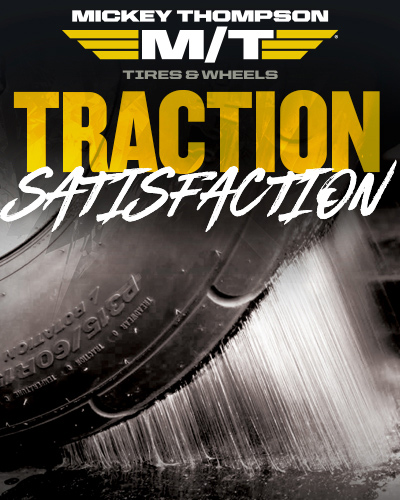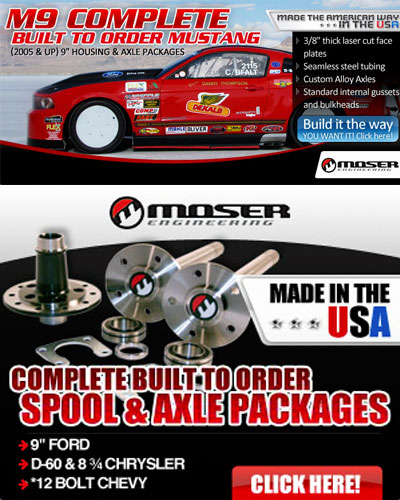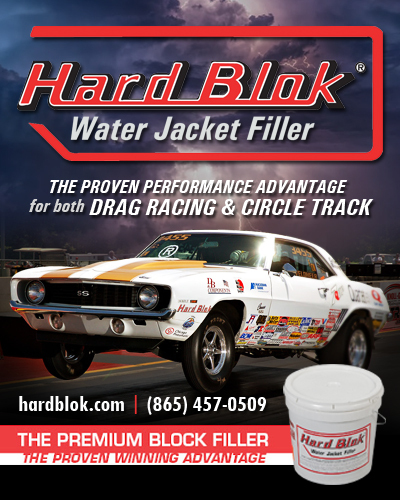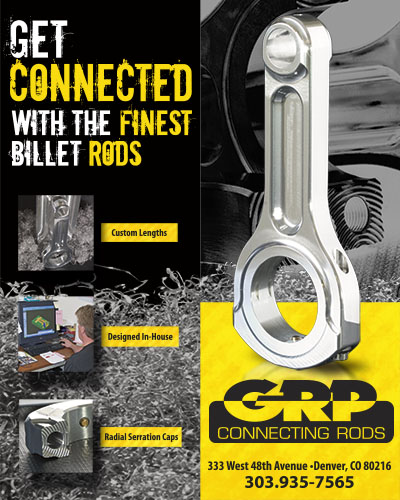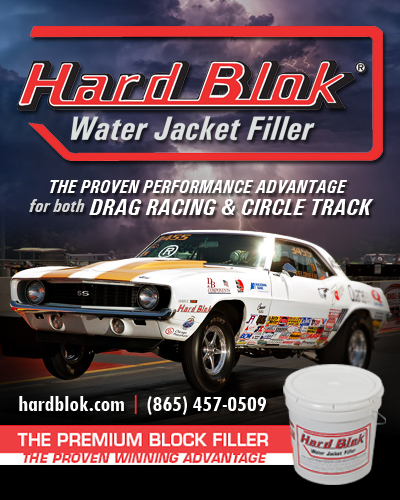UP FRONT WITH JON ASHER: A CONFEDERACY OF DUNCES OR SELLING YOUR SOUL FOR $1,250

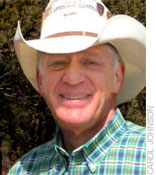
A relatively minor activity that was part of the California Nationals in Sonoma may ultimately become a major factor in the future of NHRA Drag Racing. That activity was the Pro Bike Battle, which included the eight competitors who had amassed the most points during qualifying at a year’s worth of previous national events. The race was to have been sponsored by Miramonte Records, the same firm which backed the program last year, but when they apparently failed to provide NHRA with the funding for the Battle, their name was removed from the program’s publicity. More importantly, the purse for the race, which was originally posted as $61,000, was dramatically reduced by NHRA to $10,000, half of which came from Sonoma Raceway. The total payout including the qualifying money was to have been $75,000.
The original purse called for $25,000 to the winner, $15,000 to the runner-up, $6,000 to each of the semifinalists and $3,500 to each of the four first round losers. The new purse was $7,500 to win with $2,500 destined for the runner-up and no round money whatsoever. It’s worth mentioning again that only half came from NHRA, with the track paying the other half.
I have told this story a thousand times before and will undoubtedly tell it as many times again, but it’s illustrative of the mentality of far too many drag racers. About 40 years ago there was talk of a boycott over round money during the U.S. Nationals. At the conclusion of a vocal gathering of competitors, Jerry “The King” Ruth opined, “All of this talk is fine, but come Monday morning it’s gonna be ‘Get the hell out of the way, I’ve got the left lane.’” Actually, he dropped an F-bomb instead of the word “hell.” Ruth was succinctly informing his cohorts that he knew that when push came to shove they would fold like a house of cards and race, and he was absolutely correct.
I have witnessed any number of efforts to organize competitors into a single cohesive voice, and every one of them has been an abject failure, unable to achieve any of their stated goals, particularly in terms of payouts. When you get right down to it, it’s more than racers just wanting to race. It’s racers failing to understand the power they hold, for without them there is no show. It’s also their unwillingness to acknowledge that they actually operate in fear of the National Hot Rod Association, when in truth the exact opposite should be the case.
NHRA may sanction an event, but it’s the racers who make it happen, not an alphabetized sign on a fence.
During the Norwalk race on the July 4th holiday weekend the motorcycle competitors were informed about the Miramonte situation and the reduced purse. Rather than being able to quickly organize themselves to speak through the single voice of PRO2, the motorcycle owners group headed by Steve Johnson, it took two full weeks for the group to reach agreement on a plan. It wasn’t until deep into the Mile-High Nationals in Denver on the weekend of July 24-26 that the racers had agreed to decline participation in the Battle unless the originally posted purse was paid. It was at this point that the competitors made an error in judgment, and that was failing to inform NHRA of their intentions. Johnson has since acknowledged this mistake. NHRA didn’t find out that the racers intended to skip the Battle until Friday afternoon of the California Nationals, about 24 hours before it was to begin.
With NHRA refusing to pay the originally posted purse of $61,000 (which is peanuts in today’s corporate world), it stretches credulity to the breaking point to believe that the company couldn’t come up with the money. It’s essentially less than one month’s salary for their top executives. It’s also rather ominous for the future that NHRA declined to stand behind a program they’d promoted for well over a year. An event purse publicized in the pages of National Dragster or on the web site NHRA.com is a promise to pay that amount and not a penny less.
Let’s talk hypothetical. Suppose the sponsor of a major special race program were to inform NHRA two weeks prior to the race date that due to business reversals they’d be unable to pay the purse. Would NHRA approach the Top Fuel or Funny Car racers and ask them to run for a reduced purse? Would they, after a year’s worth of publicity about the special race, suddenly cancel it without explanation, or would they explain that the sponsor couldn’t pay the purse and blame them for the problem? My belief is they would go to their precedent file and find some other entity, even if it was just an on-paper entity like National Dragster, and pay the purse as originally posted because Top Fuel and Funny Car are a lot more “powerful” than is the motorcycle class.
Taken a step further, if there was some sort of major corporate problem would NHRA suddenly announce just before the AAA Finals that instead of a $500,000 bonus for winning the Top Fuel or Funny Car championship the winners would receive half that amount? How would they explain that to the racers, much less the media, particularly after having advertised that payout all year long?
Here’s what really happens to sponsors who don’t pay. Nothing. To my knowledge no title rights or program sponsor has ever been taken to court by NHRA over their failure to pay, and that list includes Goody’s Headache Powders, who signed a five year contract to title rights the Memphis race but bolted after the first year, it includes Meguiar’s Polish, who picked up the Memphis ball and then dropped it a year later after a three-year deal had been reported, it includes Prolong, who signed a three year deal for the Seattle race and stopped paying after the second year, yet their name remained on the race for that third year, and it includes Torco, which ultimately never paid anything as it’s owner faced serious federal tax charges. A significant number of other firms appear to have done the same thing with impunity. To my knowledge no member of the media has ever seen any indication that NHRA has ever taken legal action against either a title rights holder or program sponsor who, for whatever reason, has failed to pay.
NHRA’s refusal to honor the originally posted purse flies in the face of history. There have been special races “sponsored” by National Dragster, which really means “NHRA,” and if memory serves me on this, there was at least one Pro Stock Challenge when the sponsor suddenly left town and couldn’t be found. NHRA paid the full, originally posted purse.
Whereas NHRA has repeatedly honored posted purses, this time they refused, with Peter Clifford placing the full blame on the shoulders of Miramonte. He and other NHRA executives refused to acknowledge the direct connection between the event being promoted on NHRA’s web site and in the pages of NHRA’s newspaper and NHRA’s responsibility to pay the posted purse. It doesn’t say Miramonte.com on the top of the page, it says NHRA.com, with the Miramonte promo piece appearing below the URL. It doesn’t read “Miramonte” on the masthead of Dragster, it says National Hot Rod Association. By publicizing this program NHRA bore the total responsibility for paying the posted purse. No amount of backpedaling or blaming alters that immutable fact: NHRA endorsed the program, publicized it and promoted it. Their imprint is all over it, so the purse should have been paid as originally posted.
As stated above, but worth repeating, an event purse advertised by NHRA on either its web site or in the pages of its publication, regardless of whether it’s for a sponsor-backed special race or for an NHRA race, is a promise to pay. In fact it could be argued that a published purse is, in effect, a “contract” between NHRA and the competitors. It’s really saying, “If you show up to race, we will reward you according to this published purse.” NHRA broke that contract/promise.
What happened here is that the NHRA punished the racers for their own ineptitude in failing to obtain the program money from the sponsor. It’s important to note that the racers didn’t make a bad business decision, the NHRA did, so why punish the racers by reducing the purse? The racers did nothing wrong. In fact, they did everything they were supposed to do and more. Their machines sported the Miramonte decals per the rules. They helped promote the Miramonte-backed concerts that took place at some races, and some racers went out of their way to help promote the program through their “On The Run” columns in Dragster as well as during their personal appearances. Some even included mention of the program in their team-issued press releases. Prior to Sonoma the racers did everything right, while NHRA did everything wrong from the ethical standpoint.
But, as was stated earlier, the racers were as guilty as NHRA in terms of mishandling this situation. After putting out a press release late in the week about the program NHRA was caught off guard when informed that all eight qualified racers had signed letters indicating they wouldn’t compete in the Battle for the reduced purse. That resulted in more than one meeting between the two groups, at least one of which allegedly turned acrimonious. Rather than get into a “he said, she said” situation, suffice it to say that NHRA’s displeasure with the competitors was evident, a message they succeeded in delivering. Chinks began to immediately appear in the motorcycle armor, with one qualified rider expressing his fear that NHRA would completely drop the category in retaliation for their refusal to participate. What had begun as an impressive show of solidarity devolved into a group of whining competitors essentially “telling” NHRA that from now on they can be pushed around at will.
As an additional sign of their weakness the racers then asked NHRA to divide up the purse between the eight qualified competitors, so in exchange for a paltry $1,250 the riders have forever lost any clout they may have been building, because NHRA now knows that when push comes to shove the racers will fold like a house of cards, just as they did 40 years ago when the Top Fuel boycott fizzled, and in every instance since then. As one of my more astute friends observed, “You can’t be a victim when you’re a volunteer.”
Despite claims that the competitors ran for the fans, don’t totally believe it. I acknowledge and applaud the fact that the majority of competitors care very much about making each day at the track a positive experience for the spectators, but in this instance the event took place due to the competitor’s abject fear of NHRA, and for that reason alone.
Has anyone emerged from this fiasco looking professional? If you can name someone that could be considered a winner in this deal, you’re a better man than I.
The motorcycle competitors have emerged from this insanity in a far weaker position than they’ve ever been before. They’ve conclusively proven their ineffectiveness and lack of cohesion. For $1,250 they’ve sold their souls. And as far as the organization is concerned, they’ve emerged from this insanity as the untrustworthy managers of our sport who can no longer be relied upon to deliver the promises that appear on its website or in the pages of its house organ publication.























